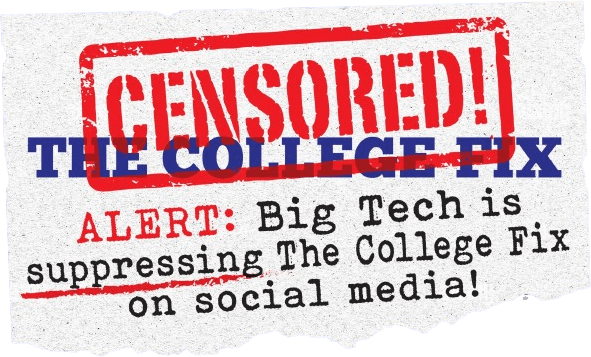College should teach us to expand our language, not restrict it
Words can mean different things in different sentences, and one meaning doesn’t cancel out another.
Because our language and our minds are flexible, fortunately we need not follow the recommendation of university “inclusive language guides” to stop using “dark” or “black” to describe anything negative in order to think positively about people with black skin.
It is not clear that the inclusive language proposals would reduce racism. But they would unacceptably restrict our imagination and our descriptive vocabulary.
“Associating whiteness with purity, cleanliness and goodness and blackness with evil and destruction serve to reinforce harmful tropes and the constructed racial hierarchy in which Black and Minoritised people are pushed to the bottom,” according to “Contains Strong Language: A Guide to Talking About Racism,” which came out this month.
The guide suggested that we “replace” every usage of “phrases like “‘denigrated’, ‘black mood’, ‘dark times’, or ‘whiter than white’.”
The guide’s recommendations are not unique. To quote just one of many examples, the University of Arizona’s “antiracist language guide” suggests that we stop saying “blacklist,” because “the association of the color black with negative, evil, wrong, or bad carries racist undertones.”
The authors’ claim seems to be that since “black” and “dark” refer to a historically oppressed race, we need to stop associating those terms with anything bad, because those bad associations will lead to bad perceptions of black people.
But that doesn’t necessarily follow. “Contains Strong Language” and the University of Arizona guide do demonstrate that some people have negative associations with dark skin tones. However, they do not present evidence that people who use words such as “black,” “dark” or “denigrated” to describe something negative are more likely to be prejudiced against people with black skin.
That might be true because people understand that adjectives can have different meanings — some positive and some negative — for different things at the same time.
We know that “blue” sometimes means sad without inferring that a blue sky is depressing. “Gray” can mean boring or cloudy or old but also complex and nuanced. “Childish” is a negative thing to call an adult, but calling a young person a “child” is not a slur. The meaning is inferred from the context.
The words “black” and “dark” also have long and complex histories that cannot be reduced to racial associations or commentary.
In its entry for the “black,” the Online Etymology Dictionary notes that the word’s “figurative senses often come from the notion of ‘without light,’ moral or spiritual.”
As for “dark,” it comes from “Middle English derk, later dark, from Old English deorc ‘without light, lacking light or brightness (especially at night),'” according to the dictionary.
The English translation of the Hebrew book of Genesis uses “darkness” in reference to lack of light, as does someone who complains that the game had to end because it got dark out, or talks about the “dark turn” of a movie that ended badly.
We don’t need to censor this very old and common usage in order to stamp out racism. Nor is it clear that this elimination is possible. College administrators and diversity consultants can stop recommending that we try.
In his dystopian novel 1984, George Orwell described how an imaginary government controls people — flattens their imagination and free will — through imposing a new language that restricts thought and speech. Here’s how he describes the state’s new language, called “Newspeak”:
Its vocabulary was so constructed as to give exact and often very subtle expression to every meaning that a Party member could properly wish to express…This was done partly by the invention of new words, but chiefly by eliminating undesirable words and by stripping such words as remained of unorthodox meanings, and so far as possible of all secondary meanings whatever.
We do not live in a totalitarian state like the one Orwell described. But his novel does point to good reasons to suspect authorities who try to toss out “undesirable words” or “unorthodox meanings.”
Instead of instructing us which words we should and should not say, universities should teach people (of all races) to claim and command the English language in its rich complexity, in its many shades of dark and light.
MORE: Michigan State inclusive language guide: ‘bunny,’ ‘gift,’ ‘America’ are offensive
IMAGE: Sabphoto/Shutterstock


